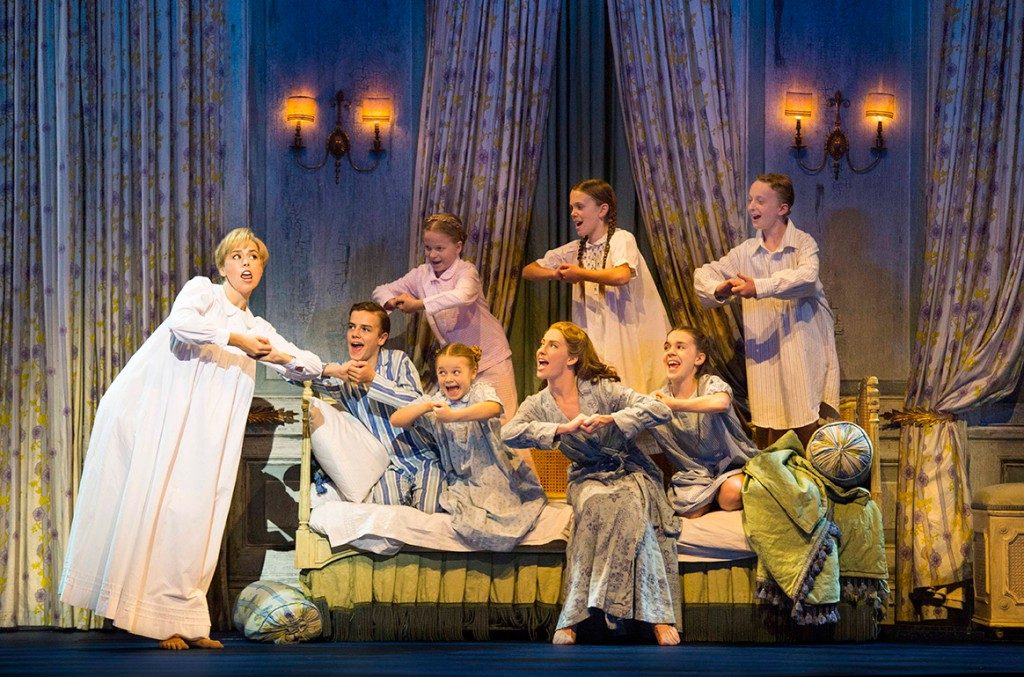
‘Rabbit Hole’ // Ad Astra
‘Rabbit Hole’ was intimate.
Ad Astra has opened the doors of their hole-in-the-wall theatre to welcome audiences to ‘Rabbit Hole’. Written by David-Lindsay Abaire, ‘Rabbit Hole’ tells the story of Becca and Howie, a couple who have recently lost their child, Danny, to a freak car accident, and their descent into grief and turmoil. The characters are all falling deeper into or coming out of a rabbit hole of their own. Issy, Becca’s sister, is about to become a mother, which Becca hopes will force her to get her life in order, while she sinks further into sadness over the loss of her son. Nat, Becca’s mother, is still reckoning with the death of her own son to a drug overdose but seems to find solace in helping her daughter through grief. Abaire won the Pulitzer Prize in 2007 for this play, and Cynthia Nixon snagged the Tony Award for Best Actress in a Play for her portrayal of Becca.
‘Rabbit Hole’ is interesting because it doesn’t make a large, hysterical spectacle of grief, but rather is a close examination of the intricacies of a family recovering from a crisis. Taking on this story is no easy task but Ad Astra has proven itself to be the perfect home for Abaire’s play.
The set was a simple, slice-of-life style living room, but was incredibly interesting to look at because it told the story before the actors stepped onto the floor. During Act One, old toys litter the corners of the kitchen, a constant reminder that Danny’s presence still resides in their house. As they begin to heal from his loss in Act Two, the house becomes cleaner and plants are brought in, as if new life is growing out of the grief.
One standout moment of the simple yet striking lighting design highlighted the emotional distance between Becca and Nat when they cleaned out Danny’s room. A gentle spotlight was placed over the boy’s bed, while the pair sat in dim light on either side of the bed. It was a reminder of what they had lost, but also of the space between them that fell away by the end of the scene. Direction by Mikayla Hosking was incredibly intricate. The show was blocked dynamically; even when characters were dialoguing menially, she managed to inject meaning and interest through physical tension and action. She is surely a director to watch out for this year.
Janelle Bailey brought a coldness to Becca. She often played her as more emotionally repressed, feeling as if no one truly understood her pain. Her performance was complex and challenged how we think women express grief.
Howie, portrayed with strength and love by Stephen Hirst, gave the often quick-tempered, but deeply pained father emotional peaks and valleys, enrapturing the audience in this character’s journey out of his own rabbit hole.
Issy, played by Vanessa Moltzen, was the perfect late ’90s rocker chick and was a truly beautiful opposite to Becca. She was enviably authentic in her performance.
We all know a Nat, usually a maternal figure without a filter, and Julia Johnson brought with her a sense of empathy for a character that could be easily read as insensitive.
Jason Willet, the teenage boy responsible for Danny’s accident, played by Fraser Anderson, had the right amount of trepidation and awkwardness to make the audience feel deeply for his character.
While the show struggled through some of the slower moments in Abaire’s dialogue, it flourished in the higher peaks of the script. It elicited audible reactions from the audience when Becca erases a home DVD of her son and when Nat’s ramblings about the Kennedy family turn into an accidental dig at her daughter’s loss.
I couldn’t imagine having felt the pain, anger and grief that radiated off the performers the same way if the show was performed in a larger house. The small black-box theatre at Ad Astra served as a very interesting home for this story. It meant that the actors were able to be incredibly detailed in their portrayals of the characters without having to do so much to ensure the audience saw their intricacies. It made Howie’s moments of rage uncomfortable, and Jason’s discomfort tangible. Rarely do we get to see stage actors at work so close; spaces like Ad Astra provoke emotion from the audience without having to try too hard. Being so close to the actors made this story one to remember.
Grief is such a difficult theme to execute well, but it’s shows like ‘Rabbit Hole’, and gems like the performers at Ad Astra, that remind us we aren’t so alone in the world.
‘Rabbit Hole’ performs until Saturday, 9 April 2022 at Ad Astra. For more information visit the Ad Astra website.






